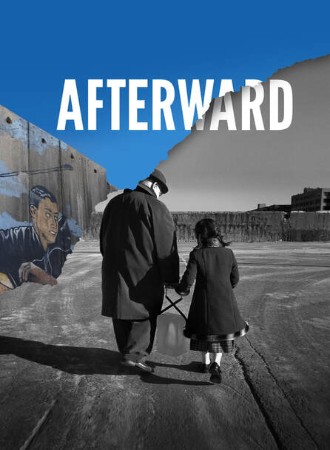
Afterward 2018
Distributed by Passion River Films, 154 Mt. Bethel Rd., Warren, NJ 07059; 732-321-0711
Produced by Jack Riccobono
Directed by Ofra Bloch
Streaming, 95 mins
General Adult
Arab-Israeli Conflict; Jewish Holocaust
Date Entered: 06/03/2020
Reviewed by Alexander Rolfe, Technical Services Librarian, George Fox University, Newberg, OROfra Bloch, a Jew who grew up in Israel shortly after its establishment, turns her psychoanalytic lens on Germans, Palestinians, and herself. She travels to Germany to interview some post-war children of Nazis, as well as a former Neo-Nazi. Some of their reminiscences are interesting, but it's ultimately rather aimless. Bloch is prone to ask whether someone is uncomfortable, or how it feels to have the discussion, instead of carrying it further. After talking to the children of the people who persecuted her forbears, Bloch then turns to interviewing those afflicted by her people. Most of the film is spent interviewing Palestinians, who describe the pain of the Palestinian experience and voice a clear dedication to resistance in all forms.
The film is often emotional, skipping as it does from atrocity to atrocity. To the extent that the film has a thesis, it's that Jewish victimhood promotes a sense of Jewish moral superiority that makes it easy for Israel to impose suffering on Palestinians. Curiously for a film seeking understanding, there is no attempt to engage with the other side. We hear at length from Palestinians and Israeli peace activists; Bloch herself makes a couple of remarks that indicate she has always opposed the occupation and violence in general. We never hear from an Israeli with a different point of view. Bloch also seems willing to consider only psychological causes; religion is never mentioned, and ideology comes up only in the context of Germans. Consequently, the film is something of a dead end-- therapeutic for the filmmaker perhaps, but not reaching any conclusions or deeper understanding. In spite of these limitations, the interviews are interesting, as is Bloch's effort to reconcile these two aspects of her identity.